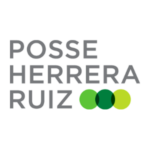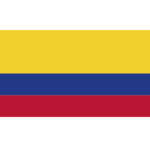

In the field of corporate compliance, the effective implementation and implementation of programs and systems for the prevention and management of risks such as money laundering and corruption is increasingly important. One of the most recent documents from the United States Department of Justice (DOJ) points to this conclusion, which consists of a guide for the evaluation of corporate compliance programs, aimed at federal prosecutors in charge of prosecuting companies for participating in acts of corruption and transnational bribery, in application of the Foreign Corrupt Practices Act (FCPA).
The aforementioned guide is intended to give prosecutors tools to “make informed decisions about whether, and to what extent, the company’s compliance program was effective at the time of the crime and is effective at the time of the accusation” in order to determine its merit to exonerate liability or mitigate the penalty imposed on the company. The second of the three cardinal aspects that the guide gives to evaluate the programs, inquires about whether the company’s compliance program has adequate resources and powers to function effectively, and the third of the criteria to answer this question is directly related with compensation and consequence management structures, in other words, establishing incentives for compliance and disincentives for non-compliance.
The Superintendency of Companies of Colombia, as regulator of the most extensive compliance programs in the country (SAGRILAFT and PTEE), shares the opinion that sanctions and compensation schemes are an important, even essential, element of an effective compliance program. Therefore, both Circular 016 of 2020 (SAGRILAFT) and Circular 011 of 2021 (PTEE) instruct obligated subjects to include this element in their programs, as follows:
– Section 5.1.2. of Circular 016 of 2020 says that: “The SAGRILAFT must include sanctions or consequences for employees, administrators, associates or third parties, for non-compliance or non-observance of its provisions.”
– Section 5.1.5.3.2, literal g, establishes that the compliance officer must implement “internal investigation procedures in the Obligated Entity to detect non-compliance with the PTEE and Acts of Corruption”; and section 5.1.2. It says that “the PTEE must include, in a clear and simple way, the consequences of violating it.”
Additionally, the Superintendency clarified, in Official Letter 220-091819 of July 11, 2021, that “the obligated subjects will determine the mechanisms that will allow them to evaluate, monitor and control the risks and, in turn, will establish the relevant sanctions for non-compliance with the system in accordance with its organizational structure, sanctions that must cover both employees, administrators, associates or third parties. (…) Therefore, it is up to each obligated company to determine, in each particular case and in accordance with the characteristics of its organization, the sanctions applicable to associates who fail to comply with SAGRILAFT.”
Colombian companies that have been implementing these programs since 2016 have focused on following the regulations’ instructions to the letter, including simple sanctioning regimes in their compliance systems. In practice, the most common scheme consists of classifying non-compliance with the duties and obligations derived from compliance policies and procedures as disciplinary offenses, and the compliance area, in these cases, usually plays the role of investigator who presents the case. before the disciplinary authority. The consequences for non-compliance have then been limited, with good judgment, to what is permitted by labor regulations, from reprimands to suspensions from their duties without remuneration, and in serious cases even the termination of the employment contract with just cause, after developing a disciplinary due process. It is worth remembering that, according to the substantive labor code, disciplinary sanctions with pecuniary consequences are completely prohibited, except in cases in which the worker has unjustified delays or absences, in which case the hours or days not worked can be deducted from the salary. Such regulation completely prevents the imposition of economic sanctions for lack of compliance.
On the other hand, incentive or compensation schemes to encourage compliance seem to still be a field insufficiently explored by companies, which is a real shame because, although there are currently insufficient parameters to measure the effectiveness of adopting compensation schemes in compliance programs, the truth is that in other areas of the development of corporate culture, incentives have proven to be useful tools to promote cultural changes and the internalization of corporate values, so, from the perspective of corporate compliance, it would be a practical recommended to help translate paper compliance programs into the reality of companies.
Contrary to the situation in the United States, Colombian regulations do not require or suggest specific models of incentives and sanctions as a mandatory requirement in compliance programs. The assessment of these programs within the framework of the administrative sanctioning procedure lacks detailed government guidelines, and there is nothing to indicate that the compensation and sanction schemes are rigorously evaluated as a component of effectiveness to mitigate the administrative responsibility of legal entities in the framework of the sanctioning procedures initiated under the Anti-Corruption Statute (Law 1474 of 2011) and the Transnational Bribery Law (Law 1778 of 2016). However, Colombian regulation tends to imitate North American trends, which have become a true compliance standard for Latin America, therefore, it makes sense that we begin to take the tools seriously to make our compliance programs true instruments. for the prevention and management of risks in companies.
BONUS: Some ideas on incentive and sanction schemes to reinforce the compliance culture in your company:
Incentives:
• Public recognition: Reward ethical and transparent employees in meetings or internal communications.
• Ethical bonus program: Offer financial bonuses to employees who demonstrate outstanding ethical behavior.
• Ongoing training: Provide ethics and compliance training opportunities, with incentives for completing courses and certifications.
• Extra days off: Provide extra days off as a reward for maintaining high ethical and compliance standards.
• Participation in decision-making: Invite ethical employees to participate in key decision-making processes to foster their commitment.
Sanctions:
• Temporary suspension: Impose temporary suspensions on those who violate ethics or compliance policies.
• Affected performance review: Link performance evaluation to ethical conduct, so that those who do not comply face consequences in their reviews.
• Phased removal process: Implement a system of progressive warnings before termination for cases of unacceptable ethical conduct.
• Prohibition of promotions: Prevent promotions and promotions for those who have violated ethical policies until they demonstrate a change in their behavior.
It is important to adapt these measures according to the culture and specific needs of the company, promoting a balanced approach between incentives and sanctions to achieve effective results.
By Nicolás Castro Márquez, corporate criminal lawyer, Posse Herrera Ruiz.





